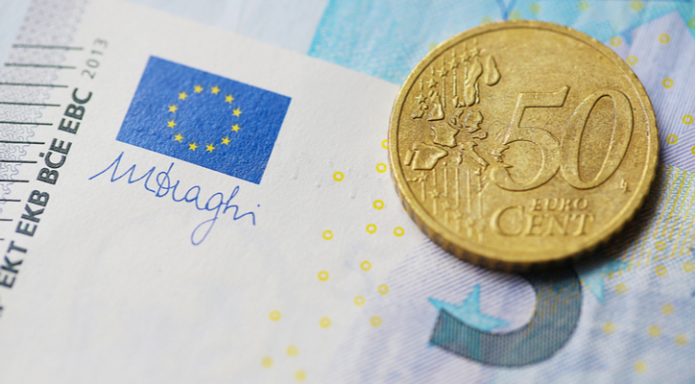Optimism over Brexit combined with a barrage of weak Eurozone data meant the pound rallied 0.55% versus the euro on Friday. The pound euro exchange tare hit a peak of €1.1218, its highest level in 3 weeks.
| What do these figures mean? |
|---|
When measuring the value of a pair of currencies, one set equals 1 unit and the other shows the current equivalent. As the market moves, the amount will vary from minute to minute. For example, it could be written: 1 GBP = 1.13990 EUR Here, £1 is equivalent to approximately €1.14. This specifically measures the pound’s worth against the euro. If the euro amount increases in this pairing, it’s positive for the pound. Or, if you were looking at it the other way around: 1 EUR = 0.87271 GBP In this example, €1 is equivalent to approximately £0.87. This measures the euro’s worth versus the British pound. If the sterling number gets larger, it’s good news for the euro. |
With no high impacting data at the end of last week, Brexit discussions remained very much under the spotlight. Optimism towards Brexit increased when EU Chief negotiator Michel Barnier suggested that the Irish border issue should be de-dramatized. This is the first time that Mr Barnier has showed a softer side to his negotiation stance, which boosted investor hope that a deal could still be achieved before the October deadline.
| Why is a “soft” Brexit better for sterling than a “hard” Brexit? |
|---|
| A soft Brexit implies anything less than UK’s complete withdrawal from the EU. For example, it could mean the UK retains some form of membership to the European Union single market in exchange for some free movement of people, i.e. immigration. This is considered more positive than a “hard” Brexit, which is a full severance from the EU. The reason “soft” is considered more pound-friendly is because the economic impact would be lower. If there is less negative impact on the economy, foreign investors will continue to invest in the UK. As investment requires local currency, this increased demand for the pound then boosts its value. |
Brexit will remain in focus at the start of the new week as the EU has reportedly ready to give Marnier the mandate to close a Brexit deal. This olive branch could come just in time for Theresa May who is under heavy pressure from the hard-line Brexiteers in her own party. Theresa May is in need of a helping hand from the EU, particularly after ex — Foreign Minister Boris Johnson’s full on attack on the Prime Minister over the weekend.
In addition to Brexit, investors will also be looking towards the monthly Gross Domestic Product (GDP) reading. Analysts are expecting UK economic growth to have increased 0.1% month on month in July, leaving quarterly growth at 0.4%. Stronger than anticipated data could lift the pound.
Euro Looks Shaky On Weak Data
The euro traded broadly weaker versus its peers at the end of last week thanks to a slew of data which fell below analysts’ expectations. Firstly, German industrial production unexpectedly declined. Analysts had been expecting an increase of 0.2% year on year in July, instead German industrial production fell by over 1% with exports at the lowest level in five months. This is the clearest sign yet that US trade tensions are negatively impacting the global economy and demand.
In addition to softer data out of Germany, the eurozone GDP also fell short of analysts forecasts, growing 2.1% year on year, down from 2.2%. The softer data weighed on demand for the common currency.
| Why does poor economic data drag on a country’s currency? |
|---|
| Slowing economic indicators point to a slowing economy. Weak economies have weaker currencies because institutions look to reduce investments in countries where growth prospects are low and then transfer money to countries with higher growth prospects. These institutions sell out of their investment and the local currency, thus increasing supply of the currency and pushing down the money’s worth. So, when a country or region has poor economic news, the value of the currency tends to fall. |
This week investors will be looking towards the European Central Bank rate decision. Analysts are not expecting any change in policy.
This publication is provided for general information purposes only and is not intended to cover every aspect of the topics with which it deals. It is not intended to amount to advice on which you should rely. You must obtain professional or specialist advice before taking, or refraining from, any action on the basis of the content in this publication. The information in this publication does not constitute legal, tax or other professional advice from TransferWise Inc., Currency Live or its affiliates. Prior results do not guarantee a similar outcome. We make no representations, warranties or guarantees, whether express or implied, that the content in the publication is accurate, complete or up to date. Consult our risk warning page for more details.
This article was initially published on TransferWise.com from the same author. The content at Currency Live is the sole opinion of the authors and in no way reflects the views of TransferWise Inc.





